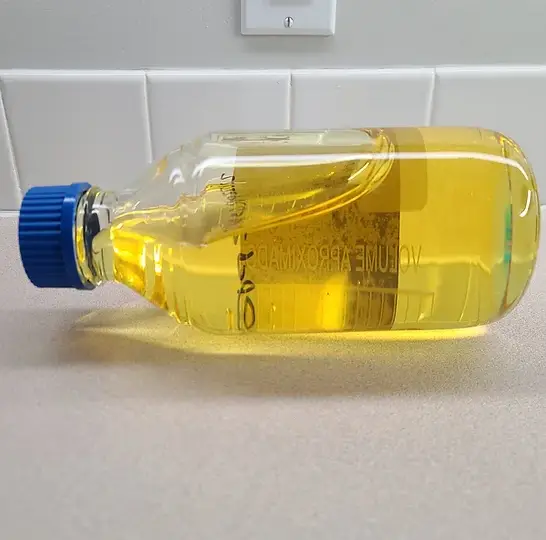In case you haven't heard, THC-P is a brand-new cannabinoid that was only recently identified and is receiving a lot of attention. Tetrahydrocannabiphorol, often known as THCP, is a very insignificant chemical generated from hemp that has already demonstrated its amazing benefits, making it highly sought-after by any hemp lover who enjoys compounds with psychedelic properties. But who prevails in the conflict between THCP and THC? Which is more potent?
Since THCP is so new, we are unable to provide much information about it at this time while we wait for additional studies, which will undoubtedly be conducted in the coming years. We just do not have access to a multitude of data demonstrating what the chemical is capable of, unlike other cannabinoids. Continue reading, though, to learn what we may already be aware of.
What is currently known about how THC-P compares to Delta-9 THCP?
We know enough to give a nice summary of the features and properties of THCP. Because it is comparable to delta-9-tetrahydrocannabinol (Delta 9 THCP), we will contrast the two cannabinoids to give you a better idea of what to anticipate.
Psychopathic Behavior THC vs. THCP
The psychotropic characteristics of THCP are possibly the most well-known. The endocannabinoid system (ECS), which Delta 9 THCP Distillate acts on via CB1 receptors, is what causes the high that people feel. In contrast to delta 9, THC-P is around 30 times more effective in binding to these receptors, making it far more powerful. This may also imply that it's a fantastic alternative for those who have trouble getting the desired high from delta-9, as some people may even have fewer CB1 receptors, which prevents them from having a full-bodied psychoactive experience.
The “high” from THCP is thought to resemble that of Delta 9 THCP, but we cannot speak for its precise nature at this time because we do not yet have enough data from users who have actually used it.
The Nervous System's Impact
Our bodies have the ECS, in which CB1 receptors are in charge of controlling nervous system activities that have a big impact on how we feel every day.
CB2 receptors control the immunological and digestive systems.
THCP definitely impacts CB1 receptors, and it is likely that it also operates on CB2 receptors, but we have not yet uncovered this mechanism in studies. In essence, Delta 9 THCP Distillate acts on CB1 and CB2 receptors.
Properties
THCP may, according to current thinking, influence pain, nausea, hunger, and mood. The effects of THCP in these regions may be even more potent than those of Delta 9 THCP, which is well known for functioning on these bodily functions in a compelling manner.
What's Its Origin?
Again, cannabinoids that naturally occur in cannabis are what delta-9 THC and THCP are, and everybody who has used cannabis has ingested them. Delta-9 makes up little more than 0.3% of the chemical makeup of the entire hemp plant. It has taken a while for THCP to be discovered since it is present in even tracer levels. Of course, just like we have done for CBN, delta-8, etc., THCP can be extracted and condensed to produce formulae containing strong, active concentrations of the cannabinoid.
Study Supporting It
To avoid repeating myself, THCP is such a recent finding that there is now a severe shortage of study. This will undoubtedly change because scientists already think it might change the game due to its possible beneficial characteristics as well as its psychotropic effects. Many of the features of THC P, which has been extensively studied for decades, may be determined with accuracy when compared to Delta 9 THCP Distillate.
Legality
The hard part comes at this point. The Controlled Substances Act Delta 9 THCP lists marijuana as a Schedule I substance, making it illegal on the federal level. The 2018 Farm Bill specifies that THCP is permissible under federal law if it originates from the hemp plant. However, as they did with delta-8 THC, some jurisdictions may decide to outlaw THCP in the future. As a result, we may now assert that THCP is legal on a federal level, but it is best to double-check in your state.
Availability
When compared to THC P, Delta 9 THCP is exclusively accessible in states where marijuana may be bought lawfully. Although THCP has not yet fully entered the market, it will do so very soon. When it does, it will be lawful to buy unless the state imposes particular laws or limits.
Study Supporting It
To avoid repeating myself, THCP is such a recent finding that there is now a severe shortage of study. This will undoubtedly change because scientists already think it might change the game due to its possible beneficial characteristics as well as its psychotropic effects. Many of the features of THC P, which has been extensively studied for decades, may be determined with accuracy when compared to Delta 9 THCP.
Legality
The hard part comes at this point. The Controlled Substances Act Delta 9 THCP Distillate lists marijuana as a Schedule I substance, making it illegal on the federal level. The 2018 Farm Bill specifies that THCP is permissible under federal law if it originates from the hemp plant. However, as they did with delta-8 THC, some jurisdictions may decide to outlaw THCP in the future. As a result, we may now assert that THCP is legal on a federal level, but it is best to double-check in your state.
Availability
When compared to THC P, Delta 9 THCP is exclusively accessible in states where marijuana may be bought lawfully. Although THCP has not yet fully entered the market, it will do so very soon. When it does, it will be lawful to buy unless the state imposes particular laws or limits.
0







